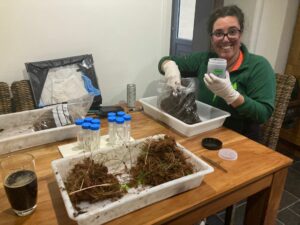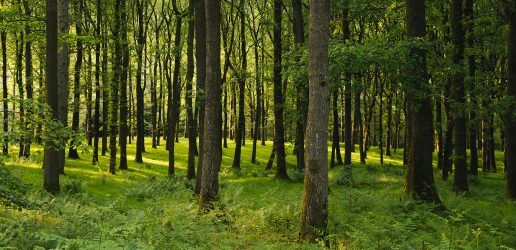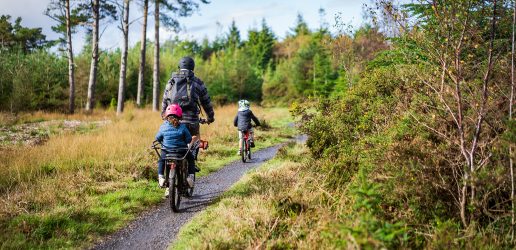My name is Ainoa and I am a soil ecologist at Forest Research. I have been in this role for a few months, having previously worked in the entomology department for about three years.

I am very much a generalist, currently applying my ecological knowledge to soil biodiversity, community assembly and ecosystem functioning. Even though I had seen Forest Research entomology jobs advertised for years, it was only after I finished my PhD that I decided to have a go at applying. I never thought that I would be a good fit for Forest Research because I am not a forest specialist and becoming a researcher was never part of my master plan – the learning style of my biology degree of endless exams and little reflection on what we were learning, did not portray research as an enjoyable pursuit.
It was only during my MSc that I started seeing research in another light, undoubtedly because of the passion with which my lecturers talked about their work. However, I pursued a career in conservation first because the varied role of a ranger looked really appealing to me. Little did I know that conservation would be full of passionate people, but also characterised by seasonal paid work, low wages and many volunteering opportunities. I was lucky getting a residential volunteering opportunity with a knowledgeable and tough woman, Emma the ranger, who was a great mentor to me and to any other volunteers willing to learn, and remains my friend to this day.
I am the result of a second-generation matriarchy and Emma’s personality resonated with me because she reminded me of strength and determination of that lineage of women that had to get on with things not to make meet’s end, but because it was in their nature. Emma taught me everything I know about conservation in the UK and enlightened me with similar stories from her native Tasmania and her travels around the world. This was probably the happiest time of my working life, I had no money and no plan, but I was surrounded a great team of staff and volunteers in a beautiful nature reserve where there was always something going on.
I eventually came back to research for a PhD and I have been fortunate to continue in this path to this day. Being a researcher is as different as it can get from being a ranger, but it is a creative pursuit with fieldwork and conference perks. And there is a strong argument to be made for all those generalists out there: knowledge can be learned but being a jack of all trades is a useful transferable skill that if you are lucky enough to master, can open many doors.
I would not have been able to achieve any of this if it hadn’t been for all those key women in my life and the implicit understanding that I could do whatever I wanted to do if I did my best. And I think this is the main message for any woman out there: even though the journey can be windy and there might not be a clear destination, having determination, confidence, and a bit of luck to find key mentors along the way will get you where you need to be.

The British Woodlands Survey, 2025, which focuses on resilience launches.

Forest Research has released the results of the Public Opinion of Forestry Survey 2025 for England and the UK, Scotland and Wales.
New research has been published which explores how to enable and encourage access to woodlands for diverse members of the public.

The British Woodlands Survey, 2025, which focuses on resilience launches.

Forest Research has released the results of the Public Opinion of Forestry Survey 2025 for England and the UK, Scotland and Wales.
New research has been published which explores how to enable and encourage access to woodlands for diverse members of the public.